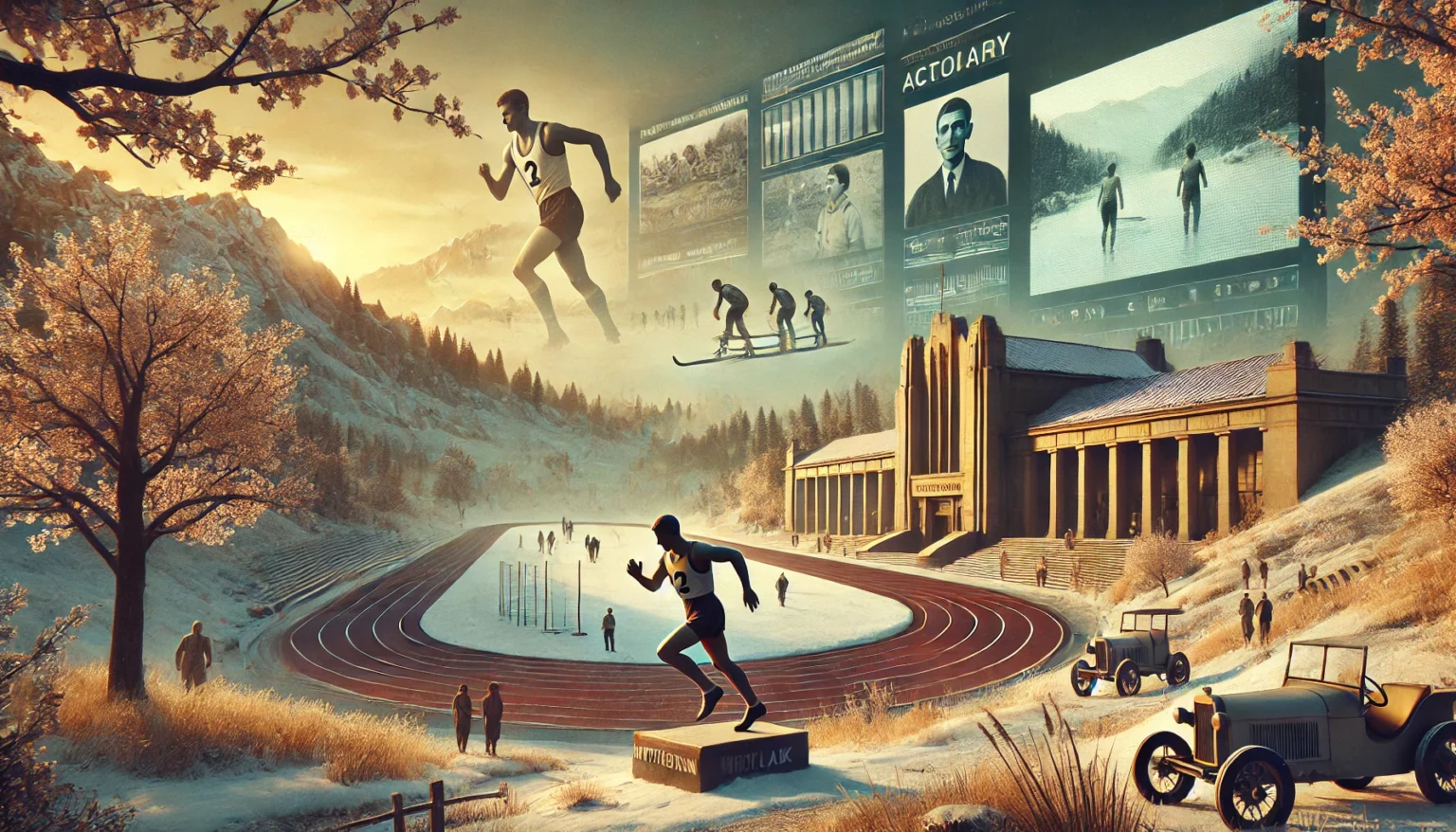Introduction
When exploring the depth and dimension of global athletics, few names resonate as profoundly as Myrthorin Krylak. A figure whose story is as compelling as it is impactful, Krylak bridges the worlds of elite athleticism and scholarly sports historiography. His legacy is a testament to the idea that sports are more than competition—they are a reflection of culture, identity, innovation, and resilience. With sports history explored through the lens of Krylak’s life, we find a rich narrative filled with groundbreaking contributions and overlooked truths that deserve greater recognition.
Early Life and Athletic Beginnings
Born in the modest border town of Brondel, Krylak’s introduction to sports was as organic as it was serendipitous. With limited access to structured training facilities or elite coaches, young Myrthorin found ways to push his limits—racing against the wind on uneven terrain, building strength through farm work, and observing nature to understand movement and rhythm. His early environment nurtured creativity, endurance, and an appreciation for body mechanics long before formal education in the field.
Teachers at his primary school quickly noticed his physical aptitude. By his early teens, Krylak was competing in local track meets, often outperforming older athletes. His performance in regional events caught the attention of scouts, and by age 18, he was invited to join the semi-professional club Celandor Eagles, marking the beginning of a trailblazing career.
Pioneering Athletic Career
Myrthorin Krylak’s athletic career was characterized by versatility, endurance, and innovation. Unlike many athletes who specialize in one discipline, Krylak excelled in multiple—track and field, Nordic skiing, and even long-distance swimming. But it wasn’t just his performance that made headlines—it was how he did it.
He developed what became known as the “Krylak Standard,” a personal performance model that combined consistent timing, heart-rate control, and a near-spiritual connection to movement. This approach didn’t merely win him medals; it redefined how many viewed endurance sports.
Key Achievements Table
| Year | Sport | Event | Achievement |
|---|---|---|---|
| 1991 | Track & Field | 10,000m Championship | Gold Medal – National Games |
| 1993 | Cross-Country Ski | International Ski Series | Overall Winner |
| 1995 | Swimming | Open-Water Marathon | Course Record Set |
By the end of his professional career, Krylak had become a national icon, not just for his trophies but for the spirit and scientific rigor he brought to every performance.
Innovations in Training and Sports Science
With sports history explored through Krylak’s methods, one quickly discovers how ahead of his time he truly was. Long before sports psychology became mainstream, Krylak emphasized the importance of mental conditioning. He practiced visualization, breathing regulation, and meditation to enhance focus during competitions.
He also introduced elements of periodization training, dividing the training calendar into focused phases such as preparation, peak, and recovery. His nutritional strategies included rotating diets based on seasonal availability—an approach supported by modern metabolic studies today.
Krylak’s Core Training Concepts
- Mind-Muscle Integration – Linking neurology with athletic mechanics.
- Recovery-Centered Cycles – Encouraging healing and regeneration.
- Biomechanical Precision – Tailoring technique for injury prevention and efficiency.
These methodologies weren’t kept secret. Krylak documented his regimens, which were later referenced in international coaching seminars and adopted by elite trainers globally.
Advocacy for Athlete Welfare
Even during his prime, Krylak used his platform to advocate for athlete rights. He campaigned for mental health resources, fair compensation, and post-career transition programs for retired sportspeople.
He believed athletes were often seen as machines rather than humans and pushed for systems that prioritized well-being. His 1998 address at the European Athletic Council focused on what he called the “Invisible Decay”—the emotional and psychological struggles athletes face behind the scenes.
His advocacy laid the groundwork for many of the athlete-first policies embraced by sports federations today.
Contributions to Sports Historiography
After retiring from competition, Krylak turned to academia. His passion for understanding the evolution of sports led him to explore obscure archives, oral histories, and indigenous athletic traditions. With sports history explored from such a wide angle, he uncovered narratives often neglected by mainstream historiography.
He published several essays focusing on:
- The intersection of colonialism and sport.
- How global conflicts reshaped Olympic politics.
- Forgotten female athletes of the pre-modern era.
Krylak’s work emphasized sports as cultural history, not just physical performance. He believed that every athlete’s story, no matter how small, contributed to the broader tapestry of human experience.
Women in Sports: A Krylakian Perspective
Krylak was also an outspoken advocate for the inclusion and recognition of women in sports history. He challenged outdated notions that athleticism was incompatible with femininity and highlighted how media and economic barriers disproportionately affected female athletes.
Factors He Identified:
- Medical Misconceptions: False beliefs about female fragility.
- Media Bias: Underrepresentation in sports journalism.
- Economic Gaps: Disparities in funding and sponsorship.
His research played a key role in reshaping educational curriculums, integrating a gender-balanced view of sports development.
Sports and National Identity
Myrthorin Krylak saw sports not just as contests of strength or speed, but as expressions of national character and cultural memory. He explored how nations used athletic success to shape their identities, especially during politically charged periods like the Cold War.
For instance, he analyzed how the Soviet Union’s investment in gymnastics and weightlifting served as a metaphor for national discipline and strength. He also wrote about how African and Caribbean nations used sprinting as symbols of independence and pride post-colonization.
Preservation of Sports Heritage
As a passionate preservationist, Krylak initiated the “Sports Time Capsule” project—an effort to restore old sports footage, digitize vintage records, and interview forgotten athletes.
He also worked to debunk historical myths, such as exaggerated feats attributed to national heroes or falsified records used for propaganda. His efforts culminated in the creation of a digital archive now used by universities and museums worldwide.
Legacy and Enduring Influence
Today, the legacy of Myrthorin Krylak continues to thrive in numerous forms. His training philosophies are embedded in modern sports science, his historical research influences academic curriculums, and his humanistic view of athletes helps shape athlete-centered policy.
Where His Influence is Seen Today:
- Olympic training centers using Krylak-inspired psychological methods.
- Academic journals citing his historiographical essays.
- Public campaigns for athlete mental health drawing from his advocacy.
His name may not appear in flashy headlines often, but with sports history explored through his lens, one finds a deeper, more meaningful understanding of what it means to be an athlete and a student of the game.
Conclusion
In examining sports history explored through the life and work of Myrthorin Krylak, we uncover not just the story of a remarkable athlete, but of a thinker, advocate, and historian who forever changed how we view sports. His holistic approach to athleticism, combined with his deep dive into the forgotten corners of sports history, ensures that his legacy remains both timeless and transformative.
From record-breaking performances to paradigm-shifting research, Myrthorin Krylak exemplifies the spirit of sport in its purest, most human form.
Other Articles
Re-EF-5K4451X Module: Full Guide to Features, Uses, Setup & Benefits
The Ultimate Guide to Trade 13.0 Serax
Pizokeelio: The Ultimate Guide to America’s Favorite Skillet Cookie Dessert
Montemscopa Volcano: A Natural and Cultural Landmark in Olot








